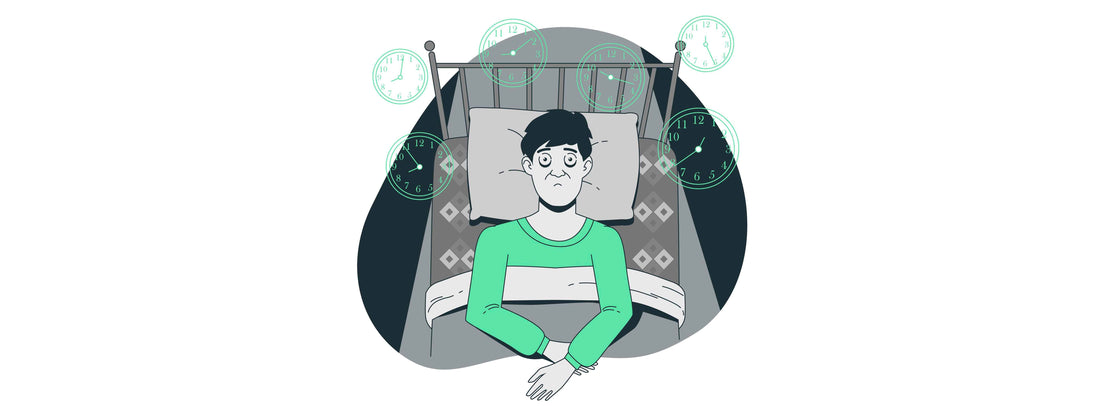
I Can’t Sleep - Insomnia
Jakub SkibaIn our always-on, screen-filled lives, getting restful sleep is becoming more difficult for many people. Whether you're dealing with a busy schedule, stress, or simply find it hard to fall or stay asleep, insomnia can take a serious toll on your physical and mental well - being. Understanding the causes of insomnia - and how to improve your sleep through lifestyle changes and nutrition - can help restore healthy rest.
What Is Insomnia?
Insomnia is a common sleep disorder that makes it hard to fall asleep, stay asleep, or wake up feeling refreshed. It can be short-term (acute), lasting a few nights or weeks, or long-term (chronic), lasting for months or even years.
Sleep is essential for memory, immune function, mood regulation, and even heart health. Without it, your body misses out on the time it needs to repair, restore, and recharge.
Symptoms of Insomnia
Recognizing the symptoms of insomnia is the first step to finding relief. These symptoms may vary from person to person and can be occasional or persistent.
Short-Term Insomnia Symptoms:
-
Trouble falling asleep or waking up too early
-
Waking up frequently during the night
-
Feeling tired or groggy during the day
-
Difficulty concentrating or remembering things
Long-Term Insomnia Symptoms:
-
Chronic fatigue or low energy
-
Mood disturbances (irritability, depression, or anxiety)
-
Poor work or school performance
-
Increased risk of high blood pressure, diabetes, or weakened immunity
Just like with immune health, there’s no quick fix—but consistent, small changes add up over time. And if sleepless nights persist, it’s always best to talk to a healthcare professional.
Sleep Supporters: Nutrients That Aid Rest
Just as certain nutrients strengthen your immune system, some vitamins and minerals play a key role in helping your body relax and fall asleep naturally. Deficiencies in these can contribute to poor sleep quality or insomnia.
Vitamins and Nutrients for Sleep:
-
Magnesium – Helps relax muscles and calm the nervous system. Low magnesium levels are linked to difficulty falling and staying asleep.
Sources: leafy greens, nuts, seeds, whole grains. -
Vitamin D – Plays a role in regulating the body’s internal clock (circadian rhythm). Research suggests low levels may contribute to sleep disorders.
Sources: sunlight, fatty fish, fortified dairy. -
Vitamin B6 & B12 – Support melatonin and serotonin production, two key sleep-regulating hormones.
Sources: poultry, bananas, eggs, fortified cereals. -
Calcium – Helps the brain use tryptophan to make melatonin, the hormone that signals it’s time to sleep.
Sources: dairy, broccoli, almonds. -
Tryptophan – An amino acid that promotes relaxation and is a precursor to serotonin and melatonin.
Sources: turkey, oats, tofu, seeds.
Lifestyle Sleep Boosters
Changing daily habits can significantly improve sleep quality. These simple adjustments can help regulate your sleep cycle and reduce insomnia symptoms.
-
Consistent Sleep Schedule – Going to bed and waking up at the same time each day helps reset your body’s internal clock.
-
Limit Screen Time – Exposure to blue light from devices at night can suppress melatonin production. Avoid screens at least one hour before bed.
-
Physical Activity – Moderate exercise boosts sleep quality. Try activities like walking, yoga, or swimming—but avoid vigorous workouts too close to bedtime.
-
Stress Management – High stress and anxiety can keep your mind racing at night. Try mindfulness, journaling, deep breathing, or relaxation techniques.
-
Nutrition Timing – Avoid heavy meals, caffeine, and alcohol in the evening. These can interfere with digestion and sleep cycles.
